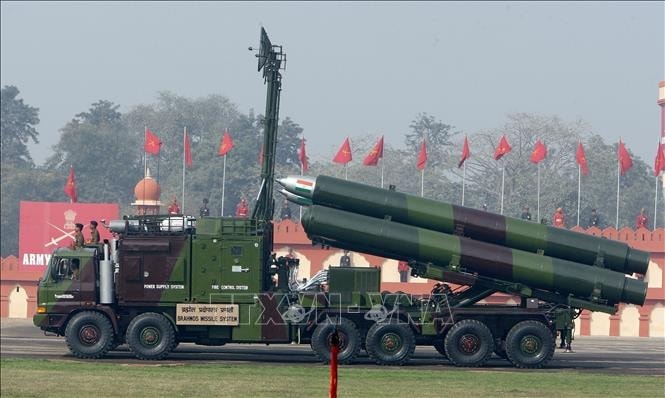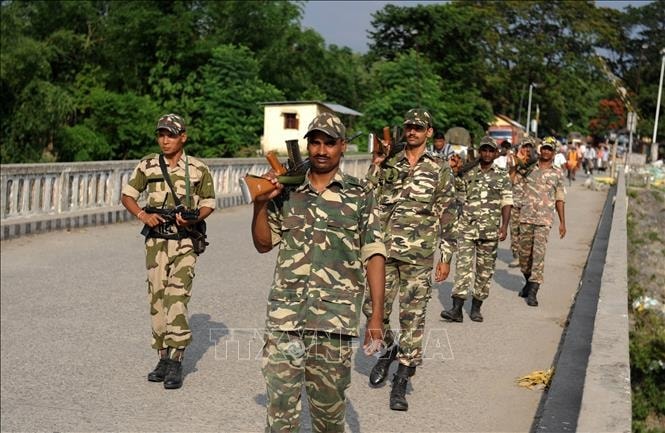With Moscow's military industry preoccupied with the conflict in Ukraine, India has made modernizing its armed forces a top priority.

India is trying to reduce its long-standing dependence on Russian military hardware by seeking new Western allies and developing a strong domestic defense industry, experts say.
The need for modernization has become more urgent as tensions between the world's most populous nation and its neighbor China have continued to rise, especially since a deadly clash in 2020 between soldiers from the two countries.
“India’s perception of the security environment vis-à-vis China has changed dramatically,” Harsh V Pant, a fellow at the Observer Research Foundation in New Delhi, told AFP.
Relations between India and China have plummeted following a clash at their shared border that left 20 Indian soldiers and at least four Chinese soldiers dead.
“This has shaken the system, and India has realised that we need to do whatever is best right now, and do it fast,” Mr Pant added.
Efforts to reduce dependence on Russia
India is currently the world's largest arms importer, accounting for nearly 10% of total global imports during 2019-2023, according to the Stockholm International Peace Research Institute (SIPRI).
According to Indian media, New Delhi is expected to continue placing orders worth tens of billions of dollars from the US, France, Israel and Germany in the coming years. Next month, Prime Minister Narendra Modi will visit France and is likely to sign contracts worth about $10 billion to buy Rafale fighter jets and Scorpene-class submarines.
Defense Minister Rajnath Singh has pledged to spend at least $100 billion on new domestic defense contracts by 2033 to boost domestic arms production.
“India has been importing weapons for decades and has only shifted to focusing on domestic production in the last 10 years,” said analyst Nitin Gokhale.
However, the transition is not easy. Mr. Gokhale stressed that not everything can be produced domestically, the country still lacks the ability to manufacture high-tech weapons systems.
Still, these efforts have achieved several impressive milestones, including the opening of a large-scale helicopter factory, the launching of the first domestically built aircraft carrier, and the successful testing of a long-range hypersonic missile.
As a result, India’s arms exports reached $2.63 billion last year, still modest compared to major nations but a 30-fold increase from a decade ago. The government aims to triple that by 2029, with much of last year’s $75 billion defense budget going toward domestic production.
Defense cooperation with the West

India has been stepping up defence cooperation with Western nations, including the Quad alliance with the US, Japan and Australia.
This has helped India sign numerous import and co-production deals for military equipment such as drones, warships, and fighter jets with Western suppliers.
At the same time, the share of arms imports from Russia, a long-time ally, has dropped sharply, from 76% in 2009-2013 to 36% in 2019-2023, according to SIPRI data.
But India has maintained a delicate balance between its relations with Moscow and its partnership with the West. Modi’s government has refused to directly condemn Russia’s 2022 conflict in Ukraine, instead calling for dialogue between the two sides.
“India is not in a position to abandon its relationship with Russia, as Russia remains an important partner in providing modern weapons, including cruise missiles and nuclear submarine technology,” Gokhale explained.
The expert said India has diversified its risks by sourcing from other countries, but Russia remains an important and reliable partner.